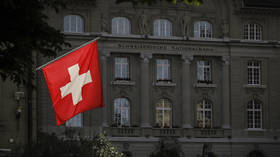Soaring energy costs drive Swiss inflation higher – data

Consumer price inflation accelerated again in Switzerland at the start of the year, largely reflecting higher food and energy prices, figures from the Federal Statistical Office showed on Monday.
Inflation rose 3.3% year-on-year in January, driven by surging gas and electricity prices. The rate exceeded economists’ forecasts of 2.9% and was the highest since August 2022. On a monthly basis, consumer prices gained 0.6% in contrast to the 0.2% drop in the previous month.
The annual increase in inflation was largely propelled by a 5.6% rise in prices for food and non-alcoholic beverages. Housing and energy prices surged 5.1%, while public transport costs climbed 4.7% year-on-year. Gas prices alone rocketed by 40.3% in January in annual terms, while electricity soared by 25.5%, the statistics service said.
Utility providers adjusted prices at the beginning of the year, passing on increased costs to consumers. Swiss state regulator ELCOM previously predicted that electricity will on average become 27% more expensive for households.
Data showed that the Swiss harmonized index of consumer prices gained 0.7% from the previous month, and by 3.2% compared with the same month the previous year.
The Swiss National Bank has raised its interest rates over the last three consecutive meetings to counter rising inflationary pressures.
The regulator forecasts inflation to slow to 2.4% this year and to 1.8% in 2024. The economy is projected to grow by around 0.5% in 2023 amid weak global demand.
For more stories on economy & finance visit RT's business section












